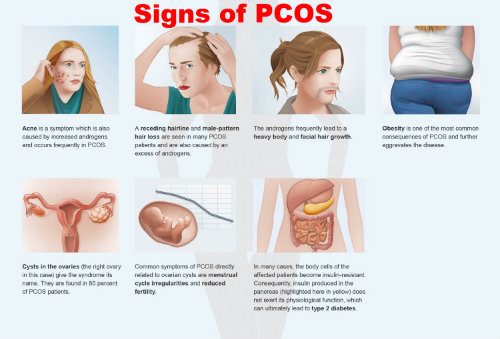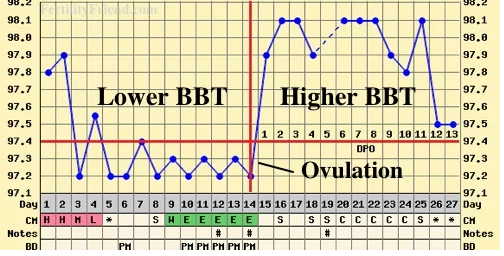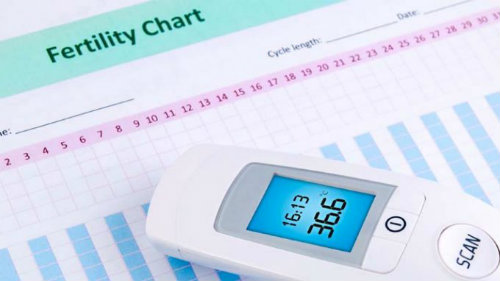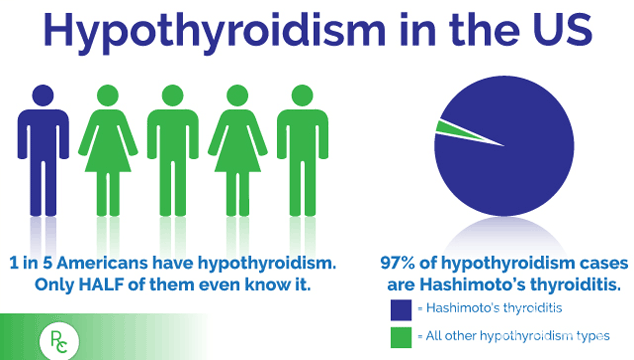![]() The information provided by our expert should not constitute a diagnosis of your condition. Always consult a medical practitioner or healthcare provider for a formal diagnosis. By making use of this content, you agree that ConceiveEasy and the expert assume no liability.
The information provided by our expert should not constitute a diagnosis of your condition. Always consult a medical practitioner or healthcare provider for a formal diagnosis. By making use of this content, you agree that ConceiveEasy and the expert assume no liability.
You and your partner have been trying for a baby for a year and no conception has happened. At this point, you are obviously quite worried with a good reason. You have also noticed that you don’t ovulate on a regular basis and you were concerned that you may have polycystic ovarian syndrome (PCOS) because of your irregular ovulation and the fact that no matter how well you are eating, you have been putting on weight. Find out how to get pregnant with hypothyroidism. Claim Your 20 Free Pregnancy Tests – Click Here
That is probably because your friends who are in Facebook groups that are about attempting to conceive are having trouble conceiving because they have PCOS. Then you are relating to their situation.
You have even been following the fertility diet, but nothing has helped you at all. That said, you are feeling quite discouraged and are wondering what kind of ordeal you will have to face in order to get pregnant.
This is definitely time for you to visit your doctor and find out why you have not been able to conceive. You have been assuming that you have PCOS, but what if the cause for your weight gain and irregular ovulation has nothing to do with that? What if you don’t have PCOS?

There are other causes of weight gain, irregular ovulation or even anovulation. You may also notice that your energy levels have been down and you’ve been also depressed.
You may be assuming that you are feeling down and that your energy levels are down because you are upset that you have not conceived. But what if these symptoms are from something else completely and it is related to the reason that you have not been able to conceive?
As soon as you see your doctor, you will have blood work done to examine your hormones, and that they will want to be examining your structural system too to make sure there are no abnormalities.
Then the next thing you know, you get your bloodwork results and you find out that your thyroid levels are too low, and that you have hypothyroidism- which is the reason you have not been able to conceive. And, hypothyroidism can most definitely cause you to feel fatigued and depressed as well.

How Does Hypothyroidism Affect Fertility?
If you have an underactive (or overactive) thyroid, your general health will be not up to par because your thyroid regulates metabolism, weight management, blood calcium, energy, hormones, your heart rate, brain function, and most definitely fertility. In fact, this goes for both men and for women.
Hormones that are involved with the function of the thyroid include the Thyroid Releasing Hormone (TRH) which helps release the Thyroid Stimulating Hormone (TSH) and that stimulate the thyroid gland which is near the front of your neck to release Thyroxine (T4) and Triiodothyronine (T3).
Most of the T4 is converted to T3 in the liver, and thyroid hormones are synthesized from amino acid from protein, selenium, and iodine. If these important thyroid regulating hormones are out of balance, then that is bad news in general.

There are many ways that hypothyroidism can have a negative effect on fertility.
- Anovulation: For instance, if there are high levels of TSH, and low levels of T4, this can cause an elevation of prolactin, which is the hormone elevated in women that are breastfeeding. This is why they don’t ovulate and have irregular periods. The same goes for a woman that has high levels of prolactin due to this thyroid problem! They have irregular ovulation, or anovulation, and have irregular periods as a result. Therefore, this will have a negative impact on their fertility.
- LH Does Not Release Egg: Another way hypothyroidism affects fertility is that the thyroid levels that are not ideal and will also not allow the luteinizing hormone (LH) to release the egg. That also causes anovulation. But this does not necessarily affect menstruation. This means because of this, these cycles would be anovulatory.
- Luteal phase issues: Hypothyroidism does not only affect ovulation. The luteal phase, which is the time between ovulation and menstruation is affected as well. A healthy luteal phase is 12 to 16 days long, and good levels of progesterone are a result of a healthy luteal phase.This stage of the menstrual cycle is crucial because if conception happened, this is the time when the embryo implants in the uterus. Healthy progesterone levels will help this happen. That means a short luteal phase which is 9-10 days and under will not support an embryo due to low levels of progesterone.Therefore, an early miscarriage would happen without the woman even knowing that she was pregnant at all. It would be no different from a period.
 The way hypothyroidism would affect the luteal phase this way is because of the LH response being poor and insufficient T3 production, and sufficient T3 levels are required for adequate progesterone production. Therefore, if by some odd chance ovulation did happen even during the thyroid imbalances, the pregnancy would not stick for this reason as well as the fact that hypothyroidism messes with temperature regulation as well.
The way hypothyroidism would affect the luteal phase this way is because of the LH response being poor and insufficient T3 production, and sufficient T3 levels are required for adequate progesterone production. Therefore, if by some odd chance ovulation did happen even during the thyroid imbalances, the pregnancy would not stick for this reason as well as the fact that hypothyroidism messes with temperature regulation as well.
- Lowers body basal temperatures: Hypothyroidism results in lower body basal temperatures which means that it cannot support embryonic cell division which is also why an early miscarriage is likely.
Therefore, hypothyroidism affects female fertility in many ways! This also applies to men as well. Men that have low thyroid levels will not produce enough and healthy, quick-moving sperm. However, this article focuses on how female fertility is affected by hypothyroidism, and how pregnancy can result! We will get to that in a bit, but let’s now focus on the causes of hypothyroidism.

What Causes Hypothyroidism?
There are many causes for low thyroid levels, and it can be a result of any of the following:
• Genetics. If either of your parents had a history of thyroid problems, then there is a good chance they passed on the bad gene that is responsible for thyroid regulation onto you.
• Autoimmune disorders. A particular condition called Hashimoto’s Hypothyroidism is responsible for poor functioning thyroid. The immune system attacks the thyroid cells and mistakenly thinks it is an infection.
• High levels of stress. Stress is a killer in so many ways, and your thyroid can most definitely be affected.
• Exposure to toxins. If you are exposed to chemicals, pesticides, electromagnetic radiation and heavy metals, that can have a negative impact on your thyroid.
• Infections. Any infection that is not treated properly can hurt your thyroid.
• Other hormonal imbalances. If your hormones are not in balance generally, then it will affect your thyroid levels as well.
• Nutrient deficiencies. If your diet is poor, and you are not getting important nutrients that you need, your thyroid will be affected.
How Can Hypothyroidism Be Treated?
Hypothyroidism can be treated and that is the good news, and the treatment depends on the cause. For instance, if the thyroid has been negatively affected by being exposed to toxins, then you’ll have to take better precautions to protect yourself from the toxins. If it is work-related, then you should have been given protected clothing and masks.

If stress is the cause, then finding ways to manage stress is a must! That means looking for ways to relax and to release stress in productive ways. For all other reasons- including the ones just mentioned, a diet that supports thyroid function and the right treatment are ways to help restore thyroid levels and fertility.
Let’s look at what can be done to treat hypothyroidism and to then increase the chances of not only conceiving but to have a successful pregnancy.
Treatments For Poor Functioning Thyroid
Depending on the cause for your thyroid condition, you will be prescribed a treatment to help restore your thyroid function. In fact, your doctor will likely prescribe you the thyroxine hormone replacement that you are low on or are lacking.
In fact, before you even start trying to get pregnant, you will have to be prescribed the right level and be monitored. In fact, you will need to continue to take this prescription throughout the pregnancy, with levels adjusted as well. That is because your unborn baby would need it as well.
However, there are other ways you can help treat your hypothyroidism through diet. Even if you were sticking to fertility friendly foods in the past, there are still key nutrients that you may be lacking.
Let’s look at what foods to eat when you are dealing with hypothyroidism to help regulate the levels of your thyroid.
Diet And Hypothyroidism
The foods to stick with when you are dealing with hypothyroidism whether it is caused by Hashimoto’s disorder or other causes is to stick with foods that are nutrient dense and have anti-inflammatory properties. That means eating colorful fruits and vegetables, foods that are rich in Omega 3 fatty acids, proteins, and whole grains.
However, you may have to take supplements as well. You also need to eat foods that are rich in iodine, L-Tyrosine, selenium, zinc, Vitamins E, C and A, and B vitamins.

In fact, the fertility diet would need to be altered in a case with hypothyroidism is involved because some foods must be avoided that can get into the way of normal thyroid function. That means to stay away from flax seeds, raw broccoli, cauliflower, kale, and cabbage. Also to be careful with the salt intake as heavy salt intake can be harmful if you have Hashimoto’s disorder.
In fact, wheat gluten must be avoided as well as it can have a negative impact on thyroid levels, You already know to stay away from soy since that can have a negative impact on all hormonal levels, and junk food, saturated trans fats, sugar, and to be careful not to overeat.
Foods that are rich in iodine must be incorporated in the diet since iodine is a crucial part of thyroid function. The foods that are high in this mineral are:
• Seafood
• Seaweed
• Eggs
• Organic Dairy
• Strawberries
You will also want to eat foods that are high in selenium, zinc, and L-Tyrosine which are critical to support thyroid function as well, and these foods include:
• Oysters
• Organic poultry
• Organic Pork
• sesame seeds
• game meats
• beans
• pumpkin seeds
Be sure to eat foods that are rich in Omega 3 fatty acids as they reduce inflammation, and are excellent for hormonal balance:
• Avocados
• Salmon
• Herring
• Trout
• Sardines
• Anchovies
• Mackerel
Be sure to avoid shark meat, tuna, swordfish, King mackerel and orange roughy because these types of fish are high in mercury levels which can not only damage your thyroid further but are dangerous for your unborn baby.
And, you will want to make sure that you are getting plenty of Vitamins E, C and A, and all foods that are rich in B vitamins. These foods include:
• Nuts
• Sunflower Seeds
• Asparagus
• Spinach
• Carrots
• Tomatoes
• Apples
• Bananas
• Dried Apricots
• Dates
• Figs
• Lentils
• Peas
• Yams
And, you need to get your folic acid supplement as well as it is crucial for the unborn baby’s development as it prevents neural tube defects from happening.
If you are receiving the right treatment of the thyroxine hormone replacement, and you are sticking to the altered fertility diet which is meant to support proper thyroid function, then you will not only be losing weight due to a properly working thyroid (or gaining weight if your thyroid has been overactive though the treatment would be different in that case)- but you will also be finding that your ovulation is returning to normal. Your cycles are regulating, and you are finding that you are ovulating through charting your cycles.

Once you do conceive, you will be carefully monitored and your thyroid treatment will need to be adjusted during your pregnancy. That being said, you can most definitely conceive when you have hypothyroidism but not successfully if the thyroid condition has not been properly treated.
You also have to do your part to keep your thyroid levels normal and healthy by sticking to the diet which is meant to support your thyroid. That means to avoid foods that can harm your thyroid as well. Good luck to you if this describes your situation!













Comments